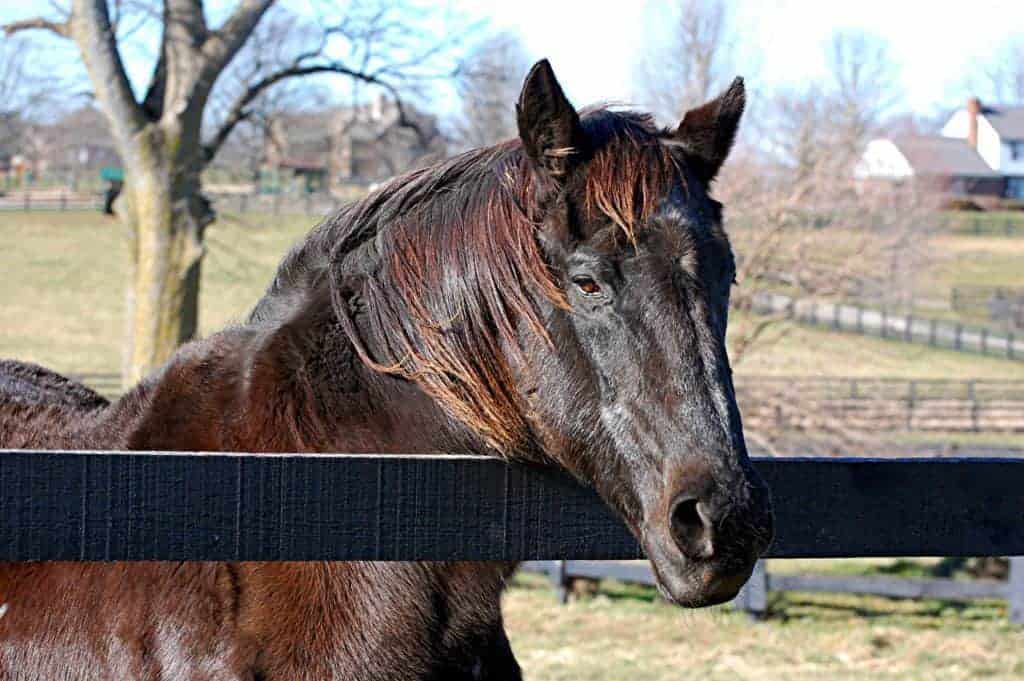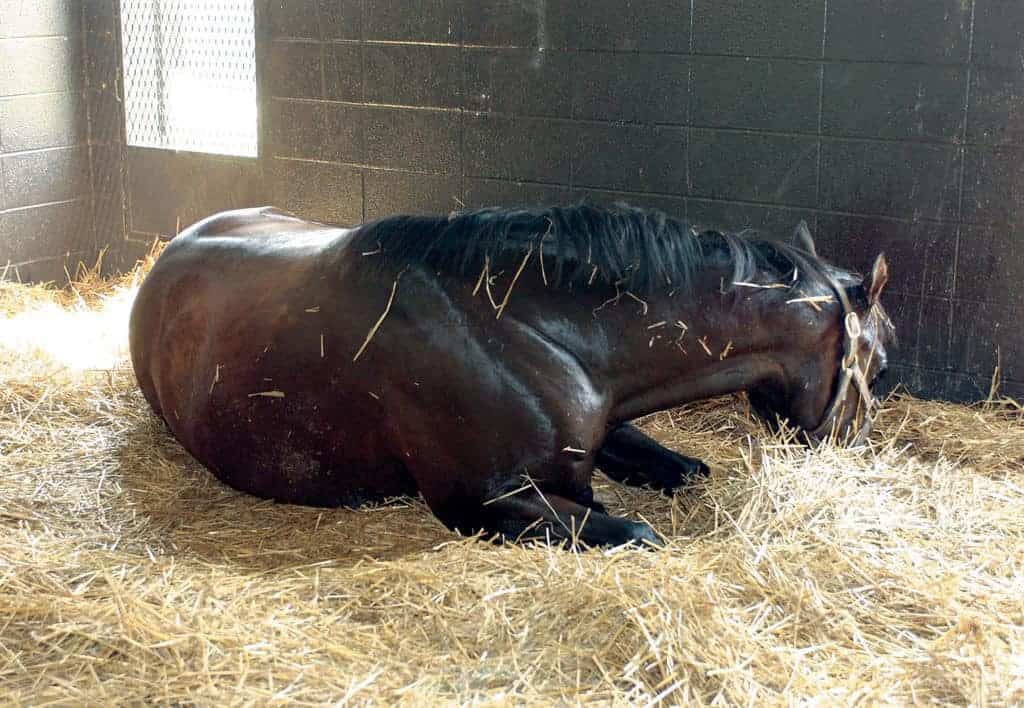
Colic in Horses: When is Surgery Necessary?
What factors do veterinarians look for when deciding whether to refer a horse to a hospital for colic surgery?

What factors do veterinarians look for when deciding whether to refer a horse to a hospital for colic surgery?

We’ll explore how the horse’s body systems age and what to look out for in your equine senior citizen.

Researchers examined the top reasons for death and euthanasia in older horses.

Adjusting what a horse consumes can help prevent or squelch some equine ailments.
Merck’s animal health division, formerly known as Intervet/Schering-Plough Animal Health, announced effective
The blood level of a specific enzyme could indicate a strangulated intestine at presentation, allowing quicker
The American Association of Equine Practitioners’ to host joint meetings, “Focus on Colic” and “Business
The American Association of Equine Practitioners (AAEP) Foundation will host the 10th International Equine Colic Research Symposium, July 26-28, 2011, in Indianapolis, Ind. The symposium, held every three years, alternating between Europe and North
Colic and its causes are part of most owners’ horse care vocabulary–an intestinal twist, sand accumulation, or gas buildup might be among the familiar events leading to equine abdominal pain. But owners might not be aware of another, less-frequent
On May 3 the University of Pennsylvania’s New Bolton Center (NBC) will present a lecture entitled “You Think It’s Colic but It’s Not” at 6:30 p.m. The lecture is part of the First Tuesdays Lecture Series at the School of Veterinary Medicine at New
Monarchos, the 2001 Kentucky Derby winner, is recovering from colic surgery performed April 19 at Hagyard Equine Medical Institute near Lexington, Ky. He stands at Charles Nuckols III’s Nuckols Farm near Midway, Ky.
Monitoring lactate levels in samples of peritoneal fluid can help a vet predict which colicky horses require surgery.
Colicky horses that undergo exploratory surgery and are ultimately diagnosed with an ileal impaction appear to benefit from a single injection of carboxymethylcellulose (CMC) into the ileum to resolve the problem, according to veterinarians from
Cold winds and changing winter weather might not seem like contributing factors for equine colic; however, these conditions can foster changes in routine and eating habits that could affect your horse’s well-being.

All about equine colic, from when to call the vet to how well horses recover from surgery.
Stay on top of the most recent Horse Health news with
"*" indicates required fields